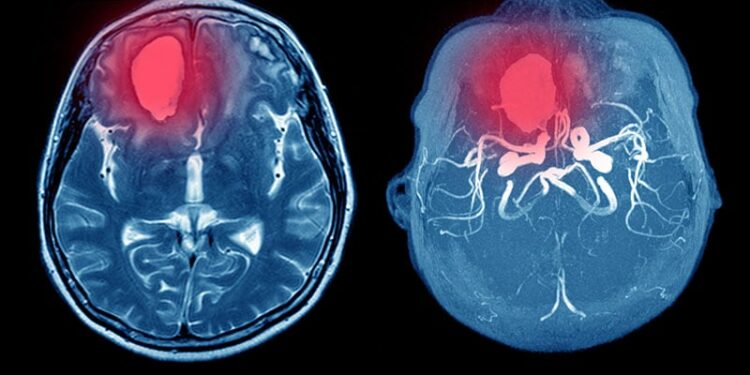[ad_1]
TOPLINE:
A new model that uses six key factors found in patients’ medical records demonstrated strong predictive power for intracranial hemorrhage (ICH) risk in patients receiving anticoagulant treatment, new research suggests.
METHODOLOGY:
- The single-center retrospective analysis included 617 patients receiving anticoagulant treatment.
- Electronic medical record data for 70% of the participants were used for model construction, while those of 30% were used for internal validation.
- The primary outcome was ICH.
- Researchers identified the risk factors significantly associated with ICH and constructed and validated a multivariate model to predict ICH risk during anticoagulant treatment.
TAKEAWAY:
- Overall, 106 ICH events occurred in the development group and 46 events occurred in the validation group, resulting in a total incidence rate of 0.4%.
- Researchers identified five risk factors associated with high risk of ICH, including male sex (odds ratio [OR], 1.9; P = .03); leukoaraiosis (OR, 10.0; P P P = .001) and fibrinogen levels ≥ 4.2 g/L (OR, 2.1; P = .01).
- The sixth risk factor they identified, use of beta blockers, was associated with lower ICH risk (OR, 0.145; P = .001).
- The model, constructed using these six risk factors, demonstrated good discriminatory power (area under the curve, 0.8; P
IN PRACTICE:
“We present a clinically useful prediction model with acceptable accuracy for patients at risk of ICH. The methodology and models employed are sufficiently generalizable and can be readily implemented,” the investigators wrote.
SOURCE:
The study was led by Fuxin Ma, Fujian Maternity and Child Health Hospital, College of Clinical Medicine for Obstetrics & Gynecology and Pediatrics, Fujian Medical University, Fuzhou, China. It was published online on January 22 in Frontiers in Neurology.
LIMITATIONS:
The broader clinical applicability of the prediction tool was limited by its small scale and the lack of data used from countries outside China in its development. Additionally, the type of anticoagulant may act as a potential influencing factor.
DISCLOSURES:
The study was supported by Funds for the Innovation of Science and Technology of Fujian Maternity and Child Health Hospital and Joint Funds for the Innovation of Science and Technology, Fujian Province, China. The investigators reported no conflicts of interest.
This article was created using several editorial tools, including AI, as part of the process. Human editors reviewed this content before publication.
[ad_2]
Source link : https://www.medscape.com/viewarticle/risk-score-may-predict-ich-anticoagulated-patients-2025a10003qu?src=rss
Author :
Publish date : 2025-02-13 08:28:27
Copyright for syndicated content belongs to the linked Source.














